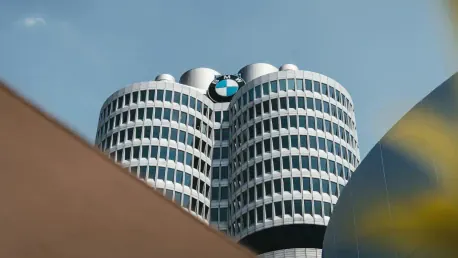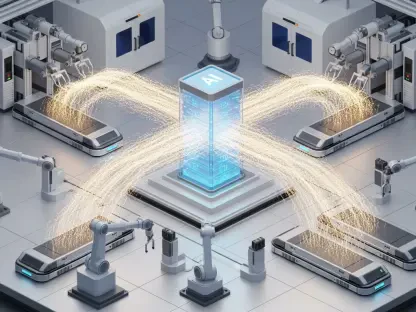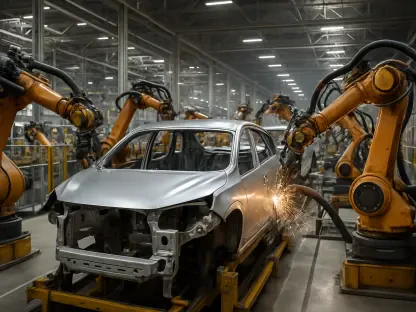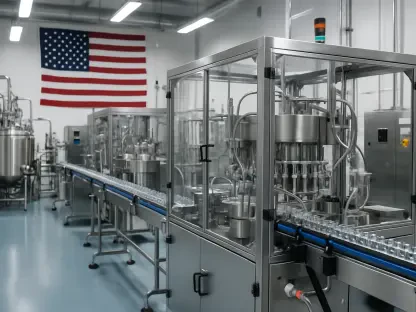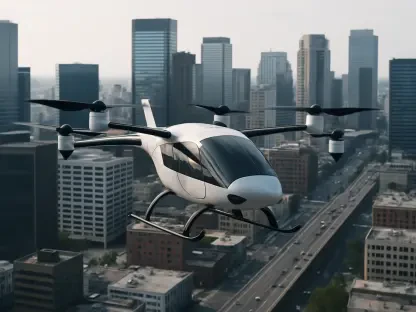Joshua Fairbourne met with Kwame Zaire, a manufacturing expert known for his deep understanding of electronics, equipment, and production management. Kwame has been at the forefront of integrating automation and predictive maintenance in the automotive industry. In this interview, they delve into a recent significant upgrade at BMW’s Regensburg vehicle plant, discussing the extensive incorporation of robots, the utilization of digital twin technology, and the broader implications for BMW’s production capabilities and the industry as a whole.
Can you describe the recent upgrade at BMW’s Regensburg vehicle plant?
BMW has made a substantial upgrade at its Regensburg plant, incorporating 294 industrial robots into the body shop, highlighting their continued dedication to high-efficiency manufacturing. This body shop spans an impressive 40,000 square meters and is designed to support the increased global demand for models like the BMW X1 and BMW X2. The scale of this upgrade reflects a significant leap in BMW’s automation strategy.
What is the scale of the new body shop in terms of size and production capacity?
The new body shop is truly expansive, covering an area of 40,000 square meters. It produces more than 120 vehicle bodies daily, with each one undergoing up to 4,771 welding operations. This high level of automation not only boosts production capacity but also ensures high precision and consistency in the manufacturing process.
How much has BMW invested in its operations in the Regensburg and Wackersdorf regions over the past two years?
BMW has invested over €550 million in upgrading its operations in the Regensburg and Wackersdorf regions over the past two years. This substantial investment signifies BMW’s firm commitment to the Upper Palatinate as a long-term industrial location. It underscores the company’s strategic vision and dedication to maintaining its competitive edge through state-of-the-art manufacturing facilities.
How does digital twin technology benefit the new body shop at the Regensburg plant?
Digital twin technology has been a game-changer for the new body shop. Every robot and system was digitally modeled before physical installation. This allowed engineers to simulate and optimize workflows virtually, leading to reduced downtime during installation and a swift start to production. The advantages are clear: minimal disruptions, efficient setup, and an optimized working environment right from the beginning.
Could you explain BMW’s broader strategy regarding automation and artificial intelligence in manufacturing?
BMW’s broader strategy involves integrating automation and artificial intelligence across its entire manufacturing network. This includes experimenting with AI-guided robotic surface processing in paint shops and trials with humanoid robots for repetitive or ergonomically challenging tasks. This systematic approach ensures that BMW remains at the cutting edge of manufacturing technology, moving towards software-defined production environments where robots are dynamically integrated into the production system.
What role does automation play in improving production efficiency and product consistency?
Automation plays a crucial role in enhancing both production efficiency and product consistency. By automating repetitive and precision-dependent tasks, BMW ensures that each vehicle body meets precise standards, which is difficult to achieve with manual processes. Automation also allows for scalable and flexible production adjustments, which is vital in responding to market demands and the transition to electric vehicles (EVs).
How does BMW perceive the role of robots in a modern manufacturing environment?
BMW views robots not as isolated machines but as integrated components within a larger, dynamic system. In BMW’s smart factories, robots work alongside human operators in tightly choreographed environments, enhancing productivity and maintaining high standards of quality. This integration facilitates human-robot collaboration and reflects the company’s vision of future-proof production systems.
What are the future implications of the new body shop for BMW’s production plans, especially regarding electric vehicles?
The new body shop is pivotal to BMW’s strategy for producing electric vehicles (EVs). With plans to produce electric versions of the BMW X1, the shop’s advanced automation and efficiency will support high-quality and scalable production. This positions BMW to meet increasing demand for EVs and reinforces its commitment to sustainable mobility.
Can you discuss any previous or ongoing human-robot collaboration initiatives at BMW’s factories?
BMW has been a pioneer in human-robot collaboration, deploying lightweight collaborative robots (cobots) in several production lines. These cobots handle tasks such as adhesive application and part handling, working alongside human operators to increase efficiency and precision in the assembly process. This collaboration is a key aspect of BMW’s manufacturing strategy.
How does deploying humanoid robots fit into BMW’s testing and future plans in the US?
In the US, BMW has conducted trials with humanoid robots, specifically assessing their potential for tasks that are repetitive or ergonomically challenging. These trials at the Spartanburg plant aim to evaluate how such robots can integrate into production lines and contribute to overall efficiency and worker safety. This approach could play a significant role in BMW’s future manufacturing strategies.
Do you have any advice for our readers?
For those in manufacturing, embracing automation and digital technologies is crucial. The benefits in terms of efficiency, precision, and adaptability cannot be overstated. It’s important to invest in continuous learning and innovation to stay ahead in this rapidly evolving industry.
